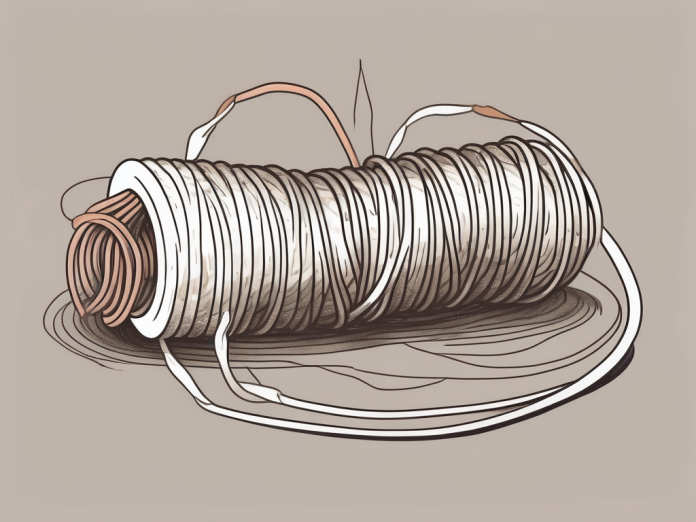Welcome to our article on chronic stress and its impact on long-term health.
Understanding Chronic Stress
Chronic stress is a type of stress that persists over an extended period of time, often months or even years. It is a prolonged response to emotional pressure and can have detrimental effects on both our mental and physical well-being.
Living with chronic stress can feel like carrying a heavy burden on your shoulders every day, impacting your ability to focus, sleep, and enjoy life to the fullest. The constant feeling of being overwhelmed and anxious can lead to a variety of health issues, such as high blood pressure, heart disease, depression, and anxiety disorders.
Definition and Causes of Chronic Stress
Chronic stress can be caused by a variety of factors, including work-related pressures, financial difficulties, relationship issues, or traumatic experiences. It is important to note that what might be stressful for one person may not be for another, as we all have different stress thresholds.
Moreover, chronic stress can also stem from internal factors such as perfectionism, negative self-talk, or an inability to cope with change. These internal stressors can exacerbate the impact of external stressors, creating a vicious cycle that is challenging to break without proper support and coping mechanisms.
When we experience chronic stress, our bodies remain on high alert for extended periods, releasing stress hormones like cortisol and adrenaline. This prolonged state of physiological arousal can lead to a weakened immune system, digestive issues, muscle tension, and even memory problems.
The Difference Between Acute and Chronic Stress
While acute stress is a short-term reaction to a specific event, chronic stress is an ongoing state of elevated stress levels. Acute stress, like the stress we experience before an exam or during a presentation, typically subsides once the event is over. However, chronic stress persists and can have more lasting impacts.
Unlike acute stress, which can sometimes be motivating and help us perform better under pressure, chronic stress overwhelms our coping mechanisms and can lead to burnout and emotional exhaustion. It is essential to recognize the signs of chronic stress early on and take proactive steps to manage it before it escalates into a more serious health issue.
The Biological Impact of Chronic Stress
Chronic stress triggers a series of physiological responses that are meant to help us deal with immediate threats. This response, known as the fight or flight response, prepares our bodies to either confront the stressor or flee from it.
The Stress Response: Fight or Flight
When faced with a perceived threat, our bodies release stress hormones, such as cortisol and adrenaline, which increase our heart rate and blood pressure. These hormones also redirect resources away from non-essential functions, such as digestion, and towards vital functions, like muscle strength and mental alertness.
While this response is essential when facing an immediate danger, such as encountering a wild animal, it can be harmful when our bodies continuously stay in this high-alert state due to chronic stress. This prolonged activation of the stress response can have detrimental effects on our immune system.
How Chronic Stress Affects the Immune System
Chronic stress suppresses the immune system, leaving us more vulnerable to infections and illnesses. The constant activation of the stress response diverts resources away from immune functions, making it harder for our bodies to fight off diseases.
Furthermore, chronic stress can also lead to increased inflammation in the body. Inflammation plays a role in many chronic conditions, including cardiovascular diseases and autoimmune disorders.
Chronic Stress and Mental Health
Chronic stress not only affects our physical health but also has a significant impact on our mental well-being.
Anxiety and Depression Linked to Chronic Stress
Research has shown a strong association between chronic stress and the development of anxiety and depression. The prolonged activation of the stress response can disrupt the balance of chemicals in our brains, leading to mood disorders.
Moreover, chronic stress can contribute to feelings of hopelessness and a decreased sense of self-worth, further exacerbating mental health issues.
Stress and Cognitive Function
Chronic stress can also impair cognitive function and memory. Studies have shown that prolonged high levels of stress can affect our ability to concentrate, learn new information, and make decisions.
Furthermore, chronic stress can accelerate the aging process of the brain and increase the risk of developing neurodegenerative diseases like Alzheimer’s.
Chronic Stress and Physical Health
The impacts of chronic stress extend beyond mental health and can significantly affect our physical well-being.
Cardiovascular Diseases Related to Chronic Stress
Research has revealed a strong link between chronic stress and cardiovascular diseases like heart attack and stroke. The elevated levels of stress hormones and increased inflammation can damage blood vessels and contribute to the build-up of plaque, leading to arterial blockages.
Additionally, chronic stress can also lead to unhealthy coping mechanisms, such as excessive alcohol consumption or unhealthy eating habits, which can further increase the risk of cardiovascular problems.
Digestive Problems and Chronic Stress
Chronic stress can disrupt the normal functioning of the digestive system, leading to a range of problems. Stress can cause a decrease in blood flow to the stomach and intestines, resulting in issues such as stomachaches, acid reflux, and irritable bowel syndrome.
Furthermore, chronic stress can also affect our eating habits, leading to weight gain or loss and contributing to the development of unhealthy eating disorders.
Prevention and Management of Chronic Stress
While chronic stress can have severe consequences on our health, there are ways to prevent and manage its effects.
Lifestyle Changes to Reduce Stress
Implementing healthy lifestyle habits can play a significant role in reducing chronic stress. Engaging in regular physical exercise, practicing relaxation techniques such as meditation or yoga, maintaining a balanced diet, and getting sufficient sleep can all help mitigate the detrimental effects of stress.
Therapies and Treatments for Chronic Stress
In more severe cases, seeking professional help and support may be necessary. Therapy, such as cognitive-behavioral therapy (CBT), can help individuals develop effective coping mechanisms and strategies to manage chronic stress.
Other treatments, such as medication, may be prescribed in certain cases where symptoms of chronic stress are debilitating. However, medication should always be used in conjunction with other therapeutic interventions.
In conclusion, chronic stress is a pervasive issue that can have long-lasting impacts on our mental and physical health. Understanding the causes and effects of chronic stress is crucial in finding ways to prevent and manage its detrimental consequences. By implementing healthy lifestyle changes and seeking professional support when necessary, individuals can improve their overall well-being and reduce the risk of long-term health problems.




























